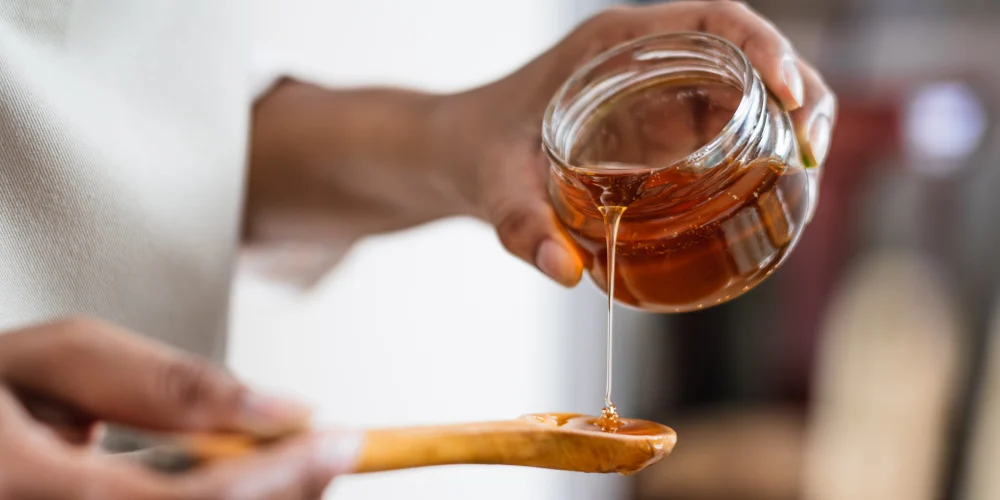Share This Article
Runny nose. Itchy skin. A cough that won’t go away. These are all symptoms of seasonal allergies, which about a quarter of adults, and one in five children, experience in the United States, according to the Centers for Disease Control and Prevention. Because they can be frustrating to deal with, many people will try almost anything to feel better, including homeopathic remedies. One of the most common is ingesting honey, like the kind you stir into your tea or drizzle over baked goods. But does honey actually help treat seasonal allergies? We consulted experts to find out.
“Ingesting honey has not been scientifically proven to help with seasonal allergies,” says Dr. Ruchi S. Gupta, a professor of pediatrics and medicine at Northwestern University’s Feinberg School of Medicine. A few small studies have researched treating seasonal allergies with honey. Still, results are inconsistent and sample sizes are too small to make definitive conclusions, says Dr. Carolyn Kwiat, an assistant professor at Mount Sinai’s Icahn School of Medicine in the allergy and immunology department. Some people believe local honey effectively treats seasonal allergies due to their personal experiences, but there’s not much scientific evidence to support their claims.
The idea that honey helps treat seasonal allergies specifically centers around ingesting raw local honey, which is minimally processed honey produced in the area where someone lives. “The belief comes from the idea that raw honey contains pollen local to where you live and that exposing your immune system to local pollen will lessen your sensitivity to it,” thus reducing symptoms, says Gupta. While this may make sense in theory, it doesn’t pan out in practice. That’s because the pollen bees collect from flowers, which honey can contain traces of, differs from the pollen that causes seasonal allergies.
People develop allergies to wind-pollinated plants, meaning plants that release microscopic pollen into the air like trees, grasses and weeds, says Kwiat. Some plants have pollen that’s too heavy for the air to carry, so it’s pollinated by animals like bees instead. Since that type of pollen never makes it into the air, it doesn’t cause allergies. And since bees don’t pollinate wind-pollinated plants, very little, if any, of that type of pollen makes it into honey, so you’re not exposed to it when you ingest it, says Melanie Carver, chief mission officer of the Asthma and Allergy Foundation of America.
While honey doesn’t help with seasonal allergies, it offers other health benefits since it’s a natural anti-inflammatory and antioxidant, says Gupta. Tea with honey, for example, is a homeopathic remedy (meaning an alternative medicine) for a sore throat and cough, says Carver. You can also ingest a small spoonful when you have a sore throat or cough if you don’t like drinking tea.
Honey is safe for adults and children over one-year-old to consume. However, babies younger than one year old should not consume honey because it contains a bacteria called Clostridium that can cause infant botulism, a dangerous infectious disease, says Carver.
Keeping a jar of honey at home is useful for treating a sore throat or sweetening foods and drinks. In our guide to honey, experts told us to prioritize buying options that are unfiltered, meaning they’re not subjected to heat and stripped of their nutrients prior to packaging, as well as pure, meaning they don’t contain any artificial additives or fillers. All of the honeys we recommend below are unfiltered and pure, per expert guidance.



